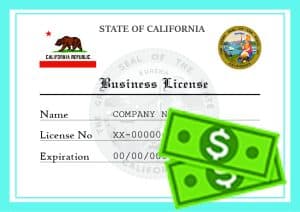
Starting a business is always an exciting time! However, many people don't give much thought to the financial aspects of starting their new venture. This blog post will discuss some financial tips that you should consider before launching your own company or taking on any other big project.
1. If You Are Not Prepared Financially To Start A Business

Starting a business is hard work and requires not only physical effort but mental too. You need to be able to handle the pressure that comes with owning your own company otherwise it might just end up being completely overwhelming which will lead you towards making financial decisions without proper planning etc.
You can even start looking for the funds. There are various types such as debt financing, venture capitalists, or angel investors – just be aware that each has its own pros and cons and you should research it, including all stages of capital raising!
If you are thinking about starting something new or even expanding what has already been started, make sure that everything is carefully considered before doing so in order for things to run smoothly from day one onwards!
2. Make A Budget And Stick To It

In order to start a business, you need money. In today’s world, your financial situation can be complicated and take time to figure out. Making a budget is necessary in order for you to have any sort of control over your finances going forward. If you require a substantial amount of funds to invest in business equipment, consider seeking out equipment leasing companies to assist you in securing the required capital and acquiring the necessary equipment.
You should know exactly how much what costs so that there are no surprises along the way as well as being able to keep track of where your money is going at all times. If it sounds like a lot of work, don't worry!
There are lots of different tools online now that make this process easy-peasy from Mint Money Manager or LearnVest which help with tracking spending habits and expenses as an ongoing activity rather than just one-off when making budgets each month/year etc.
These tools will give you the ability to do things like setting up automated savings plans in order for your money to be taken out of your account before you see it.
For example, if you choose $100/month as an automatic transfer into a separate savings account that is not linked with any debit or credit card then this means that every month without fail $100 will go into that new bank account and help grow what you have saved over time.
This gives no opportunity for impulse spending so when there's nothing left at the end of the month because all funds are already allocated towards different expenses instead of having some leftover it prevents any sort of unplanned spendings etc.
Seeking advice from Gordon Simmons will give you ideas on how to manage your finances with good credit standing.
3. Consider The Money You Will Spend On Permits And Licenses

Depending on the type of business you want to start there may be a number of permits and licenses that will need to be acquired.
For example, if your business is service-based such as an electrician then you will require different types of certifications in order for that company to operate legally within certain areas which means training etc.
If this is something that interests you it's important to do some research into what these would entail before jumping right in because they can add up quickly when not considered ahead of time.
4. Have Enough Money Allocated For Payroll Taxes

As a small business owner, you are responsible for paying taxes on the money that your employees make. This means keeping track of all their earnings and ensuring that it's taken out before they see any of it as well as having enough funds to cover this once expenses have been paid etc.
Payroll is something else that needs to be carefully thought through so doing some research ahead of time can help prevent any major problems down the road such as not being able to pay everyone involved because there wasn’t enough allocated towards payroll tax deductions or worse still getting scammed by one of your workers who claim false employment status in order to steal from you – we've heard about these stories happening before!
Remember: planning will reduce stress later on and help you to grow your business successfully.
5. Consider The Long-term Costs Of Owning A Business

While you might think that the initial investment is all it takes to start a business, there are numerous costs associated with owning and operating one.
In addition, you will need to invest in marketing and advertising for your business. This is why it’s important to develop a solid plan before opening up shop so that you can budget accordingly and set aside funds when necessary.
For example, if you know that most of your startup costs are going toward inventory or office supplies, then make sure you have enough money saved up to purchase the items as needed throughout the year.
On the other hand, if much of your company’s expenditures go towards advertising on social media platforms like Facebook or Instagram, consider making an initial investment during this early stage while continuing to save money over time until there is enough cash flow from sales revenue to support these expenses.
Conclusion
There are many financial needs when starting a business. Fortunately, there are certain things you may be able to do in order to take care of these issues before they become too much for you or your company. If you have any questions about this process, ask an expert!










